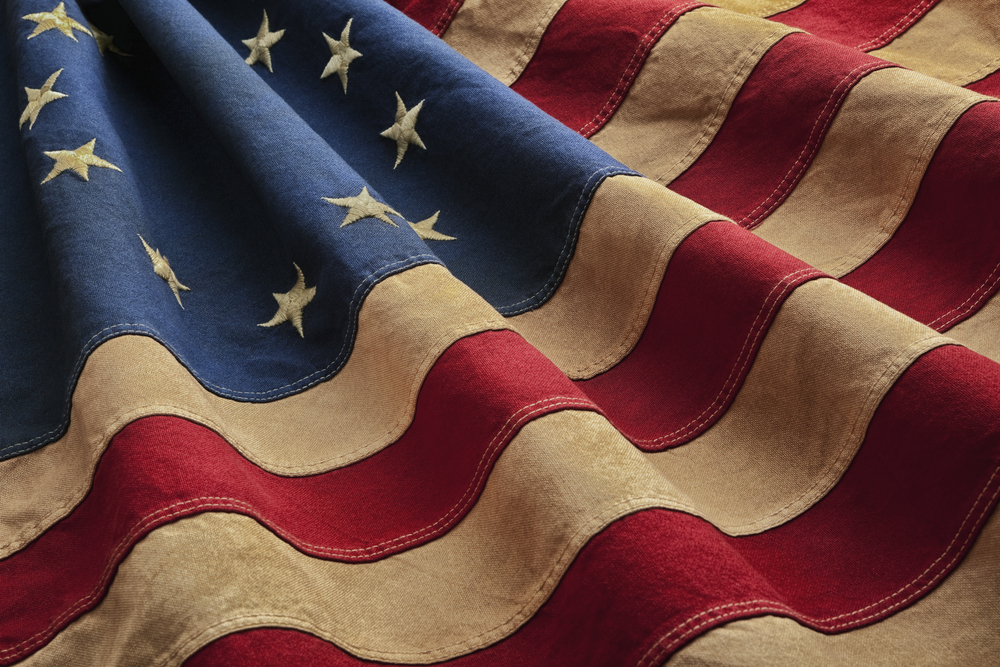Celebrating our Independence Day, we should not and never forget the American Revolution, which paved the way for our freedom. Relive the story below.
The American Revolution and The Lessons We Learned
As we approach the 4th of July holiday and celebrate the Independence of our nation, I think it is very fitting to look back at events leading to the shooting war.
It also pays to look back at the lessons learned from that time and how those same lessons apply to each of us today as we stand vigilant and aware.
Most Americans think the 4th of July is a time for hot dogs, hamburgers, barbecues, family reunions and fireworks.
And celebrating Independence Day in such a way is fine, but we also need to remember and teach our family and friends about the real reason for the holiday – honoring and remembering how our founding fathers overcame overwhelming odds and made extreme personal sacrifices to earn our freedom and independence from the crown.
As you enjoy the holiday, take time to reflect and share some of this information with your loved ones and friends.
It doesn’t need to be a heavy history class, but I do recommend trying to convey simple themes and mention lessons learned from our nation’s early heroes.
Oppression in America
As Charles Ferris Gettemy detailed in his 1906 book “The true story of Paul Revere.” in 1774-1775 there was great tumult and continued oppression of the people of America by British forces by order of King George.
In October of 1774, the Provincial Congress was organized in Boston with John Hancock serving as president to address long-held grievances to the hostile royal governor.
One such grievance was the royal proclamation which prohibited the importation of gun powder, military stores, and equipment.
In February of 1775, the Provincial Congress named delegates for the Continental Congress and provided for the establishment of a militia, also known as the “Sons of Liberty.”
British forces attempted to disband the militia forcing it to become a more secretive organization as the severe measures taken by the British actually fueled the militia and their supporters.
In early 1775, the militia formed a group of thirty patriots split into two-man teams whose mission was to conduct a continuous observation of the activities and movements of British Soldiers in Boston.
They were to provide early warning for the militia and the Provincial Congress as King George had placed a bounty on the head of John Hancock and Samuel Adams.
Paul Revere was an active member of this group.
On the late evening of Saturday, April 15, 1775, the observation team’s vigilance paid off as they noticed preparatory movements and operations underway moving small boats that were used to carry British troops to larger troop transport ships to an unknown location.
The observation teams continued to observe the British in Boston to continue to report and assess possible British targets.
Taking Back the Nation

Paul Revere was dispatched the next day, Sunday, April 16, 1775, to ride and warn the two most likely British targets in the area; the president of the Provincial Congress John Hancock and Samuel Adams who were residing in Lexington as well as the militia manned military stores in Concord.
The early warning of Revere allowed the Provincial Congress to authorize the movement of mortars and artillery to key locations, disseminate ammunition as well as the position and prepare militia forces for the impending British expedition.
Paul Revere also coordinated with the militia at the Old North Church to be prepared to display one or two lanterns in the steeple to alert the militia that the British were moving by land or by sea for early warning.
The British were, in fact, moving to Lexington to arrest John Hancock and Samuel Adams and later to seize colonial weapons in Concord.
Multiple riders, including Paul Revere and William Dawes, were dispatched on April 18, 1775, and Paul Revere’s famous “Midnight ride” provided for the display of two lanterns in the steeple of the Old North Church alerting all that the Redcoats were crossing the harbor.
Paul Revere was then captured while en route to Concord was captured but later released.
On the evening of April 18, 1775, the British marched 700 Redcoats to Lexington and at dawn on April 19, 1775, they were met by 77 Minutemen consisting of farmers and laborers.
There is debate as to which force fired first, but the result was eight Minutemen killed.
In Concord, 120 Redcoats were engaged by 400 Minutemen.
Soon. the Minutemen grew to a force of 5000 as they responded to a pre-established early-warning signal of ringing church bells.
The British were nearly defeated until reinforcements arrived, and they retreated back to Boston.
“The shot heard ’round the world” initiated the start of the Revolutionary War.
Lessons to Learn
There are many lessons learned from our forefathers that are timeless and remain effective and practical today for everyone, but especially those of us with a preparedness mindset.
1. Fight for Our Rights

The first and foremost important lesson as I see it is to know the value of our rights and defend them.
Our fallen patriots and veterans have served to earn our hard-won freedom, a Freedom that did not come freely.
It came with immense personal price and sacrifice and is continually defended to this day by our brave men and women in uniform with the support of their families and patriotic Americans.
The price our military and their families pay can only be truly understood by them.
Please teach your family and friends about their sacrifices and try to honor and assist them whenever possible.
2. Awareness of Our Surroundings
Our early patriots taught us other important lessons like being forever vigilant and aware of what is happening near you in your personal space, in your near personal space, your community, your town, your region, your state and across the nation and world and how these events will impact us.
I know this may sound like common sense, but I’m here to confirm to you today that common sense is no longer common.
The world is slowly turning back as it does from time until we are reminded by terrible events that freedom is truly not free, and is but one generation away from being lost as Ronald Reagan famously said.
3. Preparing for the Worse
Preparedness, our forefathers were wise to prepare for the worst-case scenario- a direct attack from the British.
This preparation had many levels. Not only having forces ready and in place to fight, but, more importantly, to have the awareness to have people in place to watch what was occurring under their nose.
This observation gave them an early warning, and that warning gave them the ability to choose to melt away from a fight against a superior force and to live to fight another day.
4. Having Enough of the Right Supplies and Gear
The patriots also prepared by having stores of food, ammunition, equipment and forces set up in multiple locations to eliminate all being taken at once by the British.
We do this today by having multiple stores of supplies in wisely chosen locations to prevent it from being taken or destroyed all at once in a natural or man-made disaster.
Whether it’s a bug out bag, a go-bag, a home supply or a get home bag, the point is thinking your plans out and actively taking steps to prepare and rehearse with your family.
An old Army saying goes proper preparation prevents poor performance, AKA “the 5P’s.”
And it is 100% accurate, so plan it, prep it and rehearse it so all know what to do in pretty much any situation.
Get the Family Involved
I personally recommended writing a simple “play book” for your Family so they have a checklist of things to do for each situation you think may occur and make sure they understand it.
Here’s a question to get your mind thinking, “what will you and your Family do immediately if you hear continuous sirens that are unexpected or hear an emergency message on the radio or TV or broadcast online of an impending disaster or terrorist attack in your area?”
Many of you will likely decide to call your family and coordinate what to do next and to that, I say, too late.
Guess what happens to cellular calls in times of crisis or heavy use, they go down, just like on 9/11, so if you have not pre-coordinated a loss of communication plan what will you and your family do?
Have a plan for the loss of communications during an emergency so that each of your family knows what to do in times of crisis.
I personally identify a primary and secondary place to have the family meet if you all cannot get home.
Roads, just like cell lines get jammed and bog down in times of crisis so have primary and secondary routes and locations to meet at if you cannot get home.
This is similar to your home fire drill and if there’s a fire we all get out and meet up at our primary or secondary meet up point.
Many times the same reactions will work for many emergency situations.
Be Prepared and once you are, test your plans and adjust as necessary.
One tip, simplicity is best, so keep your plans as simple as possible.
If it’s too complicated it will not work, no one will remember it, so keep it simple.
The patriots taught us to have redundancy as they did when they sent out multiple riders in Paul Revere and William Dawes, to allow the message to get through even if one were captured or killed en route, to provide early warning of the British advance allowing refinement of preparations for the Minutemen.
They also had redundancy in the number of teams that were observing the British in Boston in multiple locations during their continuous observations, and they also had redundant observation of the British operation inside their camps and towns they occupied.
The Patriots knew they were facing a superpower and had little room for error, so planning, preparing and acting were essential.
Celebrate the Land of the Free

As you go through your 4th of July celebrations, enjoy them and spread awareness of our history and sacrifices made for our Freedom in small bites to those who will learn in your family and circle of friends.
Don’t assume they know as we do a terrible job educating ourselves today and we are too distracted with unimportant things and in my humble opinion that is not an accident.
The wise prepare and can help their family and friends when in need, start in your home first and if you have some family members or friends that are not open to listening, focus on those who are, as they will strive to learn from you.
I make a point to ask my Family why we are celebrating things as they legitimately may not know and they know I will not mock them, but, instead, let them know.
Have a Great Fourth of July!
How are you celebrating Independence Day this year? Feel free to share with us your plans in the comments section!
Up Next:
- Independence Day Survival – July 4th Safety Tips
- The Meaning of Independence Day
- All Things American | Patriotic Infographics


